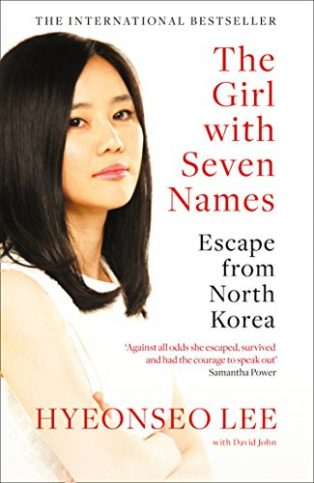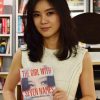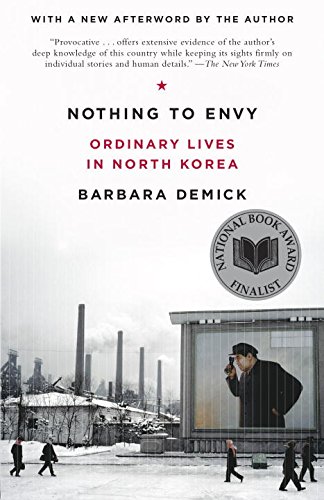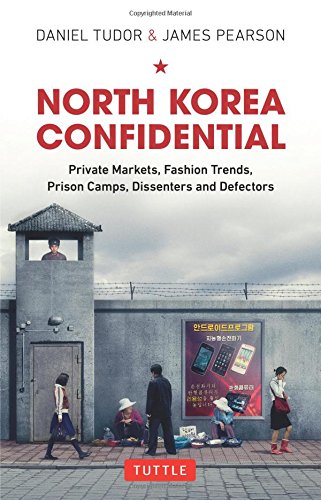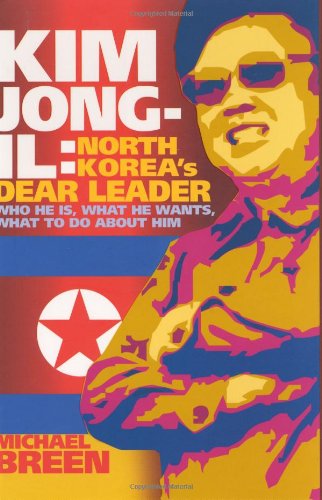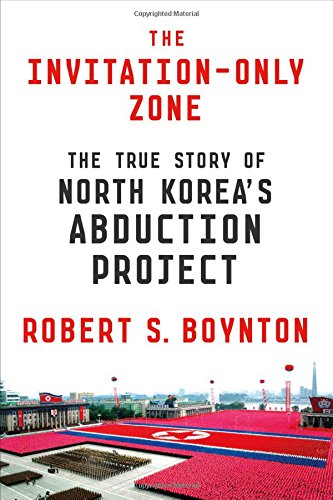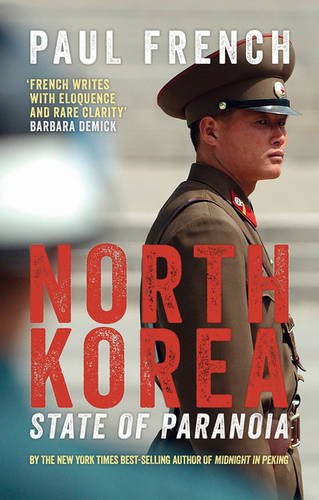Amazon.com: A New History of Christianity in China (Audible Audio Edition): Daniel H. Bays, Christine Marshall, Audible Studios: Books

Audible Sample
Audible Sample
A New History of Christianity in China
 Audible Audiobook – Unabridged
Audible Audiobook – UnabridgedDaniel H. Bays (Author), Christine Marshall (Narrator), & 1 more
4.0 out of 5 stars 9 customer reviews
-----------------
A New History of Christianity in China, written by one of the world's the leading writers on Christianity in China, looks at Christianity's long history in China, its extraordinarily rapid rise in the last half of the 20th century, and charts its future direction.
- Provides the first comprehensive history of Christianity in China, an important, understudied area in both Asian studies and religious history
- Traces the transformation of Christianity from an imported, Western religion to a thoroughly Chinese religion
- Contextualizes the growth of Christianity in China within national and local politics.
- Offers a portrait of the complex religious scene in China today
- Contrasts China with other non-Western societies where Christianity is surging.
-------
Customers who bought this item also bought
Page 1 of 2Page 1 of 2This shopping feature will continue to load items. In order to navigate out of this carousel please use your heading shortcut key to navigate to the next or previous heading.
Back

Jesus in Beijing: How Christianity Is Transforming China and…
David Aikman
4.4 out of 5 stars 59
Audible Audiobook
$14.95 with Audible membership

Through the Eye of a Needle: Wealth, the Fall of Rome, and the Making…
Peter Brown
4.5 out of 5 stars 75
Audible Audiobook
$14.95 with Audible membership

Paul: A Biography
N. T. Wright
4.6 out of 5 stars 139
Audible Audiobook
$14.95 with Audible membership

The Fall and Rise of China
Richard Baum
4.5 out of 5 stars 11
Audible Audiobook
$14.95 with Audible membership

How to Read the Bible for All It's Worth, Fourth Edition
Gordon D. Fee
4.5 out of 5 stars 650
Audible Audiobook
$14.95 with Audible membership
Next
Product details
Audible Audiobook
Listening Length: 9 hours and 16 minutes
Program Type: Audiobook
Version: Unabridged
Publisher: Audible Studios
Audible.com Release Date: April 15, 2013
Language: English, English
ASIN: B00CD93SRI
Amazon Best Sellers Rank:
#552 in Asian History (Books)
#3604 in Chinese History
#7995 in Christianity (Books)
Would you like to tell us about a lower price?
9 customer reviews
4.0 out of 5 stars
4.0 out of 5 stars
5 star 56%
4 star 22%
3 star 11%
2 star 11%
1 star1 star (0%)
0%
Review this product
Share your thoughts with other customers
Write a customer review
Ad feedback
Top Reviews
ZAI-NOX
3.0 out of 5 stars3.5 Stars. Possibly one of the best academic books about the history of Christianity in China.August 15, 2018
Format: PaperbackVerified Purchase
The problem that plagues most books about Christianity in China and its history is that they tend to be authored by unprofessional authors, published by non-scholarly presses or have a religious, political, and cultural bias. This book is one of the few academic books written by a scholar, Daniel H. Bays that specializes in Chinese Christianity and global Christianity. This book has both strengths and weaknesses but I'll make a list of them to better illustrate them.
The positives.
1. The book gives a concise overview of the history of Christianity in China from the Tang Dynasty to the present day.
2. The book is written in a balanced and scholarly fashion but yet is highly readable.
3. The book has many attractive photos and illustrations.
4. Each chapter has numerous endnotes that illuminate the text.
5. Has a appendix near the end that gives the history of Orthodox Christianity in China.
6. Has a extensive bibliography for further study.
Now the negatives.
1. The book is very slim. It's about 200 pages of actual text. As a result, the book is shallow in many aspects and the thin size of the book hardly justifies the high price.
2. Sometimes has uneven coverage and focus. The book constantly changes to different topics at quick succession making one become dazed rather fast. More than half the book is devoted to Chinese Christianity from 1860 to modernity. Leaving the periods before woefully short and rather devoid of detail.
3. Some of the sources the author uses are not academic and are questionable in reliability. Like Martin Palmer's book used for chapter 1. Palmer's book has been called a 'New Age Fantasy' by David Wilmshurst, a scholar of Nestorianism in China and of the Church of the East. Another bad source is 'Jesus in Beijing' by David Aikman. The author has no credentials and his views are questionable. His book is published by Regnery a vanity press that specializes in politically conservative nonsense. Again, some bad sources that don't belong in a academic book like this.
That is what the strengths and weaknesses of the book are in my opinion. So this book can be used as a primer to Chinese Christianity but maybe for more advanced readers. Despite the negatives, this book is highly informative, scholarly, clear, and very enjoyable to read. I really do recommend this book to students, scholars or anyone else interested in Chinese or Christian history.
HelpfulComment Report abuse
Zackabba
4.0 out of 5 starsChapter seven describes Christian interaction with events such as “the Great Leap Forward” of 1958 to 1959August 8, 2016
Format: PaperbackVerified Purchase
A New History of Christianity in China. By Daniel H. Bays. West Sussex, UK: Wiley-Blackwell, 2012. 241 pp., n.p. paper.
Daniel Bays, emeritus professor of Calvin College’s Asian Studies Program in Grand Rapids, Michigan, sets out in this history to narrate the development of Christianity in China from its inception in the early 7th century. He attempts to guide the reader on a journey through the story of Chinese Christianity, beginning with the rise of Nestorians during the Tang Dynasty (A.D. 618-907) and ending with the surge of Christian presence at the beginning of the 21st century. Bay’s unique contribution to this field of scholarly study—and his main aim in the book—is to illustrate the process of “Chinese Christians [being] first participants, then subordinate partners of the foreign missionaries, then finally the inheritors or sole “owners” of the Chinese church” (p. 1). This is Bay’s overarching thesis in his book.
Until “the Golden Age of Missions” (as explained in pp. 92ff), a main tension presented throughout the book is whether the Christianity will continue to thrive in spite of government action. The so-called “Nestorian stele” (pp. 7-8) may describe Christianity’s earliest beginnings (circa. 635), but it certainly does not foreshadow its later difficulties. Most of Bay’s book, however, focuses on the 17th century onward, one factor being that the historical record of Chinese Christianity is very slight in the years before this. And, as he notes early on, Christianity would not truly become an established religion in China until after the sixteenth century (p. 6).
Bays himself states that chapters three to six constitute “[t]he heart of the book” (p. 2). These chapters highlight the period between 1800 and 1950 AD, from the beginnings of Protestant Christianity in China to the state of both Protestant and Catholic Christianity by the mid-20th century. Chapter three begins with a story of Robert Morrison’s venture into China, as its first Protestant missionary, from 1807 till his death in 1834. During these years, as a result of war “between the British and the Qing over the mounting scale of the illegal opium flow into China” (p. 47), a treaty system developed. This could be called a “turning point” in Chinese-Christian history, a way for China to be opened up to foreign influence—such as Western Christianity. The “Taiping movement” (p. 53), however, would have no dealings with this “treaty system,” setting up rebellion from 1850 till 1864. The period of 1860 till 1902 was marked by an increase in both foreign missionary presence (e.g. Hudson Taylor [pp. 68-69]) and missionary societies within China (p. 67). By the end of this period there were 7-8 times as many Catholics as there were Protestants in China (p. 77). The Chinese converted during this time mainly due to three “incentives”: “1) material incentives; 2) sociopolitical incentives; and 3) spiritual incentives” (p. 77). Despite attempted Westernization, Chinese believers in this period still “remained thoroughly steeped in their own culture” (p. 78).
A key period in the history of Christianity in China are the years from 1902 till 1927, which Bays terms the “Golden Age of Missions” (p. 92). This is due in large part to the “Boxer Rebellion” at the end of the last century, in which many Northern Chinese believers were killed (p. 85). The martyrdom of these believers sparked a movement of voluntary missionaries to China (p. 93). A major figure in this period (and beyond) was Marcus Cheng. This fundamentalist evangelist would eventually become a part of the Three-Self Patriotic Movement (TSPM) and conversely denounced by the “anti-rightist” movement in 1957 (p. 167-168). Chapter six illustrates the rise of many different Christian leaders and movements, from Watchman Nee (pp. 132-134) to the self-entitled “Jesus Family” (pp. 131-132). Chapter seven describes Christian interaction with events such as “the Great Leap Forward” of 1958 to 1959, during which “the majority of churches still open were shut” (p. 177). Finally, in chapter eight Bays explains the condition of the church from 1966 till the present, concluding that “Chinese Christianity will probably make a mark on the world, but not in the kingdom of nation-states” (p. 205). He ends with an appendix describing Eastern Orthodoxy’s historical presence in China.
There is much to commend in Daniel Bays’ book, not the least being his ample use of references for further reading. Virtually no one resource is referenced more than twice in the same chapter—and, thankfully, many of them are recent books. These range from general resources for study in Chinese-Christian history (such as Standaert’s Handbook of Christianity in China, volume one [p. 38, fn. 2]), to biographies of Chinese Christians (e.g. Jonathan Spences’ biography on Hong Xiuquan [p. 64 fn. 27]). Furthermore, Bays notes throughout his book what topics still need to be further explored by scholars. For example, while describing the work of 16th century Jesuit missionary Matteo Ricci (p. 21), he drops in the name of a man named Alessandro Valignano. While Ricci has many biographers, Valignano—an important influence on Ricci—is, as he notes, “an understudied figure, in my view” (p. 38, fn. 9). Further study is encouraged on this influential figure. Curiously, however, he references a group called “the Little Brothers of St. John the Baptist” at least three times in this volume (pp. 141, 150, 171), yet does not once give a source for his descriptions of this group (which is unfortunate, considering that this particular reader was interested in delving deeper into deeper study of this group). Fortunately, a lack of resources is by no means a normal pattern in this history.
Bays’ also appropriately (being a scholarly guide) lets readers in on a number of current scholarly issues. For example, in the midst of describing the (then) newly established People’s Republic of China, he notes that “[s]cholars have recently been taking a fresh look at the multiple and complex challenges faced by the new regime” (p. 159). No reader is left behind concerning current scholarship. An overall positive of Bays’ volume is its ability to synthesize vast amounts of information into a readable narrative without bogging the reader down into irrelevant details. Even a document as seemingly plain and ambiguous as “Document 19” at the forefront, for instance, is cited as “the most authoritative exposition of [government religious policy] down to the present” in China (p. 190). One of the biggest helps to the narrative flow is the author’s descriptions of his own experiences researching in China, describing, for example, his experience of worship with Chinese Christians in Shanghai on “Easter Sunday, 1985” (p. 183). In this way Bays effectively draws his audience into the sights and sounds of China, a feat harder to pull off with “armchair” description.
Simply put, it is hard to find many flaws with Bays book. His writing is detailed, concise, and fairly readable—albeit the average reader might want a dictionary at hand for some words (e.g. “surreptitiously” [p. 43]). I personally would have liked to see more history on pre-Jesuit China (i.e. Christianity in China before the 16th century), but his mere one chapter on this earlier period is understandable considering that few existing resources shed much light on this time. Futhermore, one wishes Bays would have addressed some “contemporary details” (p. 204) in greater detail. For example, the author deplores the Bible-smuggling that has been occurring over the last several years by several Christian organizations (p. 204). He is right to note that almost none of these organizations let their donators know that China has its own “TSPM-related Amity Press” that “has printed over fifty million Bibles in the past several years” (p. 204). However, readers are left unsure as to what the exact form these Bibles come in—that is, whether their content has been possibly modified in any way or not. There are no resources given for his claims at this point, which is unfortunate considering the importance of this topic.
Books abound about missionaries such as Hudson Taylor and Francis Xavier, as well as books on specific periods of Chinese-Christian history. But not many give a wide-scope history of Christianity in China that is both scholarly and accessible like Daniel Bays’ New History of Christianity in China. A comparable book covering as much historical range is Christians in China A.D. 600 to 2000 by Jean-Pierre Charbonnier (as noted by the author on page 2). Highly recommended!
Zack T. Melvin
Bethlehem College and Seminary, Minneapolis, MN
3 people found this helpful
HelpfulComment Report abuse
Kris Erskine
2.0 out of 5 starsAudio version not goodJanuary 10, 2014
Format: Audible AudiobookVerified Purchase
Very good book that Bays has written, and an important edition to the literature... which is not a lot. And for that, I'd give the book, writing, and research, five stars. BUT, the audio version of this book is most difficult to endure. At times I wondered if it was a computer generated voice. Often not the proper tone of voice, and often inflection in the wrong places. I seriously did have to come back to amazon to verify that it was an actual woman, not a computer.
8 people found this helpful
HelpfulComment Report abuse

Eirene K. Wee
4.0 out of 5 starsA New History of Christianity in China (Blackwell Guides to Global Christianity)September 30, 2011
Format: PaperbackVerified Purchase
Daniel Bays' update has long been awaited, especially as he now includes developments beyond the paradigmatic Deng era! He provides a carefully researched and balanced accounting of the development of Christianity in China. I was particularly appreciative of his inclusion of new considerations among scholars concerning long-held assumptions attributing relics to certain religions while not jumping into endorsing conclusions that still lack conclusive evidence. It would have been better if he had allowed himself some latitude to comment on the theological implications of historical developments, and new discoveries but I accept that this would perhaps have strayed from the focus of this work.
14 people found this helpful
HelpfulComment Report abuse
DFB Orlando
5.0 out of 5 starsAn invaluable updated historyDecember 21, 2013
Format: PaperbackVerified Purchase
At last there is a good current history of Christianity in China. Daniel Bays is one of the best qualified to write such a history, and brings insights drawn from wide ranging study and research.
One person found this helpful
HelpfulComment Report abuse
Carolyn Iga
5.0 out of 5 starsexcellent!October 22, 2014
Format: Kindle EditionVerified Purchase
Daniel Bays gives a great comprehensive history crossing into various streams and even sects of Christianity in China. There were surprising amounts of early influences in this "atheist" nation.
HelpfulComment Report abuse
kanon
5.0 out of 5 starsgood bookApril 12, 2015
Format: Kindle EditionVerified Purchase
Liked it very helpful. It gave a good overview of Christians in China. I would recommend this book to people
=
COMMUNITY REVIEWS
Showing 1-30
3.87 ·
Rating details
· 31 ratings · 8 reviews

Filter
|
Sort order

May 05, 2013Alexander Chow rated it it was amazing
Prior to the publication of this book, Daniel Bays' de facto magnum opus has been Christianity in China: From the Eighteenth Century to the Present. This was an ironic fact since that was a book he edited which had a valuable number of new studies on Chinese Christianity, when the field was in its infancy. Prior to even that book, there has been a dearth of up-to-date histories on Christianity in China. The last major work was Kenneth Latourette's 1929 classic, which has just been reprinted, History Of Christian Missions In China. For nearly forty years, bookshelves have been in wont for a new history that takes into account the changes in Christianity through two World Wars, a civil war, the Cultural Revolution, the Tiananmen Square protests, etc., until today. Jean-Pierre Charbonnier's work, Christians in China: A.D. 600 to 2000, was recently translated into English. But Charbonnier's focus is a bit more on Catholic Christianity and, today, the fastest growing religion in China is Protestant Christianity. At last, the authority of Christian history in China has put out his well-anticipated book.
To be sure, it is a thin book -- much thinner than Latourette's or Charbonnier's -- but it is also a heavy book, that carries with it great depth from decades of academic research and experience. Like any good history, it begins the story with China's first encounter with Christianity from the Persian empire in the 7th century, and progresses chronologically through the different phases of encounters.
His last chapter focuses on the history from the Cultural Revolution to the 21st century, with some nice discussions about the so-called "cultural Christians" and urban Christianity. He ends his final chapter as he begins his first -- with an insightful comments about Christianity as a world religion. While many would be content with the book as-is, Bays goes a bit farther and includes a very nice appendix giving a brief history about Eastern Orthodoxy's developments in China. Although this reviewer would have preferred to see a more integrated look at Orthodoxy intermingled with subjects of the other chapters, this appendix brings to light an important, yet often forgotten piece of history.
Bay's new history, in the short time that has already been in print, is already making headlines as the definitive guide to the history of Christianity in China for years to come. (less)
flag1 like · Like · comment · see review

Jun 24, 2017Mingzhi rated it it was amazing
Shelves: dissertation, church-history, history, politics
It is indeed a great scholarship done by Prof. Bays (Calvin Seminary; PhD University of Michigan), a sequel of his edited book "History of Christianity in China" written 20 years ago. This new volume is rather comprehensive, but with good breadth and right depth, quite easy to consume the information presented. Good introduction for someone interested in learning about the history of Christianity in China, including both Catholicism and Protestantism. I regret, however, that Prof. Bays left out one important development in this book, which is the development of Reformed Christianity in China. However, contemporary issues related to Christianity was probably something not of priority for this book. Overall a very good read, and informative for a book on an expansive subject, written in mere 200 pages. Hopefully a second edition would correct the number of typos I found in the book. (less)
flagLike · comment · see review

Jun 17, 2017Michael Carlson rated it really liked it
A very good and comprehensive guide to the long and complicated history of Christianity in China, from its inception in the 400s, through its return with the Mongols, and then, the better known story of Christianity's reemergence in the 1580s through various (Western) missionaries.
flagLike · comment · see review

Jan 09, 2015Lauren Albert rated it liked it
Shelves: history-asia, religion
A dry but interesting look at the history of Christianity in China. I would have liked more attention paid to early centuries though I realize there are less sources. The contrast between Protestant groups and the Catholics is essential to understanding the history. Catholics had to choose between loyalty to the Pope and loyalty to the government--they were almost always seen as traitors or potential traitors. Protestants were better able to "blend" in.
flagLike · comment · see review

Jan 05, 2016Matt Tyler rated it really liked it
Shelves: 2016
Enlightening.
This book is dry, though once I got passed chapter 1 it ended up being significantly less dry than I thought it would be. My understanding of Chinese Christianity, the history of missions in China, and the various strands of churches in China was deepened. The last few paragraphs of the final chapter puzzled me somewhat. However, I would recommend to anyone who is interested in a history of Christianity in China.
flagLike · comment · see review

Dec 27, 2011Lance rated it liked it
Shelves: history, religion
This book holds a nice and brief overview of the relationship between the West and China, played out through various forms of Christian missions. The details and bibliographies are very helpful to anyone researching this topic. The first chapter on Nestorian missions was particularly fascinating, showing a possible connection between early Christianity and Bhuddism.
flagLike · comment · see review

Mar 28, 2016Brent Pinkall rated it it was amazing
A good, well-researched, comprehensive history of Christianity in China. I recommend reading a Chinese history book (such as Ropp's "China in World History") alongside this book so that you can better understand Bays' references to historical events and periods.
flagLike · comment · see review

Nov 26, 2014Lisa rated it liked it
Shelves: academic-history
Very concise history and useful, but not super easy to read. Was hoping to assign it to undergraduates, but it will need a study guide to be easy for them. Still, it seems to fill a hole in the scholarship, in under 150 pages....
Bay's new history, in the short time that has already been in print, is already making headlines as the definitive guide to the history of Christianity in China for years to come. (less)
flag1 like · Like · comment · see review

Jun 24, 2017Mingzhi rated it it was amazing
Shelves: dissertation, church-history, history, politics
It is indeed a great scholarship done by Prof. Bays (Calvin Seminary; PhD University of Michigan), a sequel of his edited book "History of Christianity in China" written 20 years ago. This new volume is rather comprehensive, but with good breadth and right depth, quite easy to consume the information presented. Good introduction for someone interested in learning about the history of Christianity in China, including both Catholicism and Protestantism. I regret, however, that Prof. Bays left out one important development in this book, which is the development of Reformed Christianity in China. However, contemporary issues related to Christianity was probably something not of priority for this book. Overall a very good read, and informative for a book on an expansive subject, written in mere 200 pages. Hopefully a second edition would correct the number of typos I found in the book. (less)
flagLike · comment · see review

Jun 17, 2017Michael Carlson rated it really liked it
A very good and comprehensive guide to the long and complicated history of Christianity in China, from its inception in the 400s, through its return with the Mongols, and then, the better known story of Christianity's reemergence in the 1580s through various (Western) missionaries.
flagLike · comment · see review

Jan 09, 2015Lauren Albert rated it liked it
Shelves: history-asia, religion
A dry but interesting look at the history of Christianity in China. I would have liked more attention paid to early centuries though I realize there are less sources. The contrast between Protestant groups and the Catholics is essential to understanding the history. Catholics had to choose between loyalty to the Pope and loyalty to the government--they were almost always seen as traitors or potential traitors. Protestants were better able to "blend" in.
flagLike · comment · see review

Jan 05, 2016Matt Tyler rated it really liked it
Shelves: 2016
Enlightening.
This book is dry, though once I got passed chapter 1 it ended up being significantly less dry than I thought it would be. My understanding of Chinese Christianity, the history of missions in China, and the various strands of churches in China was deepened. The last few paragraphs of the final chapter puzzled me somewhat. However, I would recommend to anyone who is interested in a history of Christianity in China.
flagLike · comment · see review

Dec 27, 2011Lance rated it liked it
Shelves: history, religion
This book holds a nice and brief overview of the relationship between the West and China, played out through various forms of Christian missions. The details and bibliographies are very helpful to anyone researching this topic. The first chapter on Nestorian missions was particularly fascinating, showing a possible connection between early Christianity and Bhuddism.
flagLike · comment · see review

Mar 28, 2016Brent Pinkall rated it it was amazing
A good, well-researched, comprehensive history of Christianity in China. I recommend reading a Chinese history book (such as Ropp's "China in World History") alongside this book so that you can better understand Bays' references to historical events and periods.
flagLike · comment · see review

Nov 26, 2014Lisa rated it liked it
Shelves: academic-history
Very concise history and useful, but not super easy to read. Was hoping to assign it to undergraduates, but it will need a study guide to be easy for them. Still, it seems to fill a hole in the scholarship, in under 150 pages....

